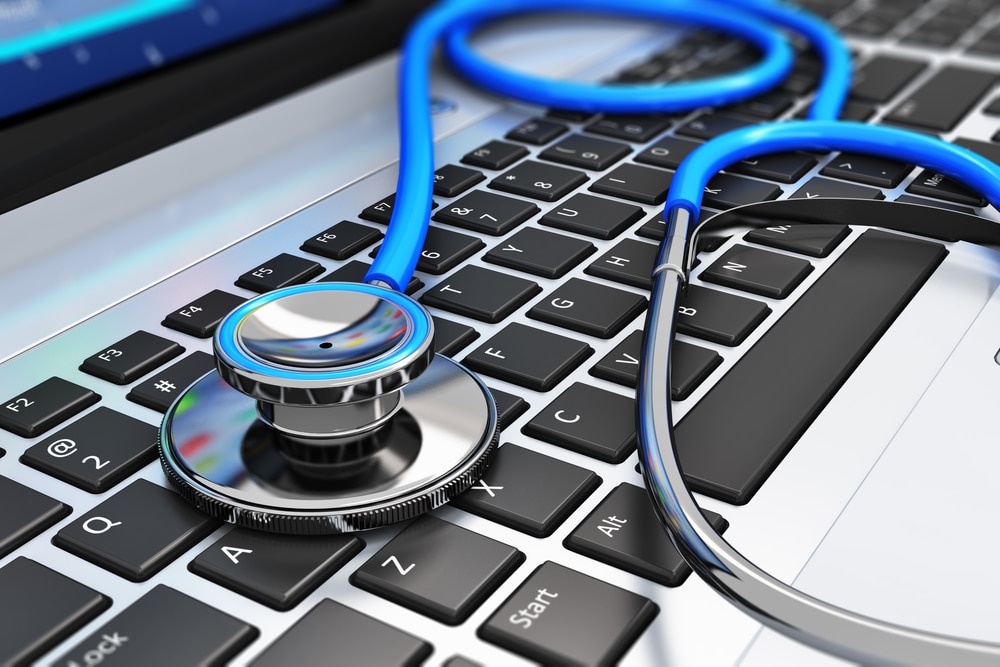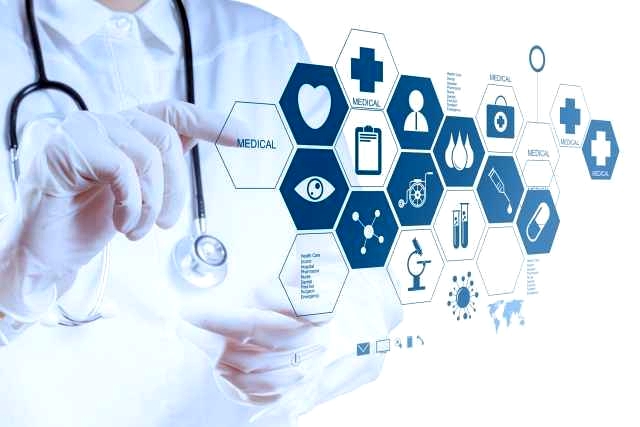
The growing role of AI in healthcare: how devices are changing the game
Healthcare hinges on diagnostics, which is why doctors must accurately identify the illnesses they aim to treat to provide proper care for their patients. An incorrect diagnosis introduces the risk that treatment may be ineffective or harmful.
To diagnose properly, doctors rely on data by measuring key metrics and evaluating their implications based on experience, education, and best practices. The more data available to doctors, the more accurate their diagnoses can be.

A clean bill of health: Harnessing data for precision healthcare
Unlike other industries, UK healthcare isn’t defined by how much revenue can be generated. Instead, success is measured in terms of achieving positive health outcomes for patients.
With new healthcare data available from a variety of sources -- such as wearables, clinical trials and biometric sensors -- healthcare is now driven as much by the promise of data processing and advanced analytics as it is by developing new and specialized drugs. So, how can healthcare professionals move faster, and gain actionable insights from the huge volumes of data they collect?

Medical device post market surveillance: Updates and trends
Post-market surveillance (PMS) is a critical part of pharmacovigilance, the science that focuses on the detection, evaluation, monitoring, and prevention of the unwanted effects of pharmaceutical products. It is vital in ensuring the safety and effectiveness of medical devices.
With the crucial role PMS plays in the healthcare industry, it merits the attention of patients, device manufacturers, and regulators. There have been developments involving or affecting post-market surveillance that needs to be highlighted because of their far-reaching consequences.

Why UK healthcare organizations need a multi-layered approach to protect against ever-evolving threats
Today, England’s aging population, the growth in chronic conditions and co-morbidities, a shortage of young people entering the profession, the deployment of new technologies, processes and treatments, an explosion in data, as well as an escalating threat landscape all contribute to the UK’s healthcare challenges. This complex combination is creating opportunities for threat actors to take advantage of weaknesses in systems security and technology as attention is diverted elsewhere.
Until COVID-19 struck, UK healthcare was structured around face-to-face interactions between patients and clinicians in hub settings such as hospitals and GP surgeries. When the pandemic made this approach too high-risk, it ushered in an era of virtual consultations on a scale never previously attainable.

How artificial intelligence is changing healthcare [Q&A]
Artificial intelligence is having an impact on more and more areas of our lives. One of the areas where it has most potential is in healthcare, allowing professionals to make faster and better decisions, and applying innovative problem solving.
We spoke to Eric Landau, founder and CEO of Encord, to find out more about the benefits and challenges of using AI in this sector.

Increasing complexity in healthcare leads to increased risk
The healthcare sector not only faces a greater number of threats from cyber-attacks compared to other industries but it could also be one of the most vulnerable industries to cyber attacks. These cybersecurity vulnerabilities were most highlighted by the recent attack on the UK's NHS this August, which resulted in widespread outages across the NHS.
Today, the healthcare industry continues to increasingly digitalise to ensure its resilience while improving the quality of care. This transformation has most recently, and rapidly, been driven by the Covid-19 pandemic which called on the industry to add new dimensions to the way that care is delivered to patients as well as increase the efficiency of overwhelmed healthcare systems. This resulted in the addition of new and innovative processes and applications such as telemedicine and the adoption of AI capabilities such as chatbots and real-time data analytics like medical imaging. However, with new technological additions, also new vulnerabilities and cyber risks are introduced into the healthcare systems.

Why remote care and connected devices are becoming more commonplace in healthcare
Today the healthcare industry faces significant challenges with long patient backlogs, a shortage of staff and resources, all of which has been exacerbated in recent years by the COVID-19 pandemic. As a result, there are literally millions of people in the queue awaiting treatment and many more that simply haven’t come forward for care or referrals, as patients put off engaging with healthcare systems.
Those with minor problems and early-stage symptoms subsequently develop more serious conditions, which are harder to treat and in turn increase the cost of healthcare provision.

Employee burnout: The financial impact to businesses and how to tackle it
Customers are always at the heart of a business. In fact, company owners, managers and their employees often go out of their way to please and satisfy every client’s needs. There is no hiding that this can be a tiring and demanding process, and it can eventually end up having a detrimental impact on a business' biggest asset: its employees.
Without adequate support and precautions, workers can face burnout. Not only will this put their physical and mental wellbeing to the test, but it can also conceal serious implications for the business itself. Stressed and unhappy employees can be more difficult to manage and -- in the long term -- could have pricey consequences on the company’s finances.

Smartphone use linked to decline in mental wellbeing for young adults
Smartphones have made a significant change to the way we live our lives, giving us access to information on the go and keeping us in touch wherever we are.
But the benefits they offer are only part of the story. An alarming new study from non-profit research organization Sapien Labs suggests that a decline in the mental health of younger generations has occurred alongside smartphone use and an increase in social isolation.

Traditional telehealth is no longer the future of health care
Telehealth has taken the medical world by storm. Hospitals rapidly adopted these remote technologies out of necessity amid COVID-19, but it quickly became apparent that their potential goes even further.
Telehealth accounted for less than 1 percent of total health care volume before COVID, but it quickly became the norm. However, it won’t be the future of medicine. More than 70 percent of physicians are motivated to increase their telehealth use, and new technologies are emerging, so this practice is evolving. Here’s a look at how metaverse technologies are transforming the future of telemedicine.

'Dr. Google, am I unwell?' What is cyberchondria and how do you tackle it?
When you experience a persistent cold or a petulant pain in your arm, there is no hiding that paying your doctor a visit is not always your first port of call. Sometimes, when struck by a headache or an unexpected rash, the first reaction is to switch on your laptop and fire your pressing questions at Dr. Google. "Why do I have pins and needles in my leg?" "What is causing this mild chest pain?" "Is this mole dangerous?"
Some searchers are simply looking for basic information and take their findings with a pinch of salt. Others, instead, will spend hours skipping from one website to the next, worried about the array of intimidating diagnoses they have found. When this occurs, it is often known as cyberchondria.

Are health apps offering wellbeing solutions or exacerbating our health problems?
In the era of smartphones, we can now manage and even improve our health on our handheld devices. Whether you’re struggling with your mental health, want boost your physical health with your exercise regime or, you’re seeking to achieve a better night’s sleep -- there’s a wide choice of apps to turn to for support.
Apps range from guided meditation to comprehensive running plans, and they can even track your sleep and mood. But are they doing more harm than good?

To better healthcare with open data
Web scraping can be a force for good in the world. While it has been predominantly used by large corporations, more opportunities for non-profit use of web scraping have been becoming apparent.
Most of these non-profit projects focused on things such as catching corruption. However, it can be beneficial anywhere where data is public. Luckily, the global trend seems to be moving us towards the democratization of data where it becomes available to everyone.

Four dangers of self-diagnosing through the web
With an almost limitless amount of information available to us 24/7, it has become a common practice to turn to Google for answers to ailments. However, while in theory learning more about potential symptoms may help ease a person’s mind, the risk of self-diagnosing looms large. A Statista survey found that 68 percent of British adults diagnose themselves through the web at least every few months -- if not more regularly.
The issue with self-diagnosis is that it may deter people from visiting a doctor. Without medical expertise, self-diagnosis can often become misdiagnosis. Here we take a look at the key issues with self-diagnosing using the web.

How and why NHS Trusts must take a longer-term view over software procurement
Getting software right is no easy task -- especially in healthcare. It must be applicable to a near-endless list of users, applications, and contexts -- and these are constantly evolving. These inevitabilities, paired with the inherent difficulties of managing such a huge organization, unfortunately means that software is often not as effective as it can be -- and costs the UK's National Health Service (NHS) far more than it needs to.
The reasons for this are, of course, many, but the fix is remarkably simple; NHS Trusts must stop looking at the micro and the short-term, and instead think about how to procure software that is both flexible and delivers long-term value. Easier said than done, I know, but it is not impossible. Here are a few things to keep in mind when choosing software.
